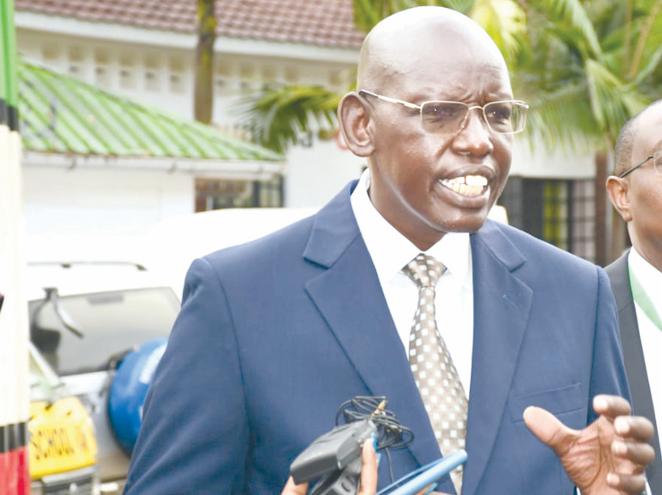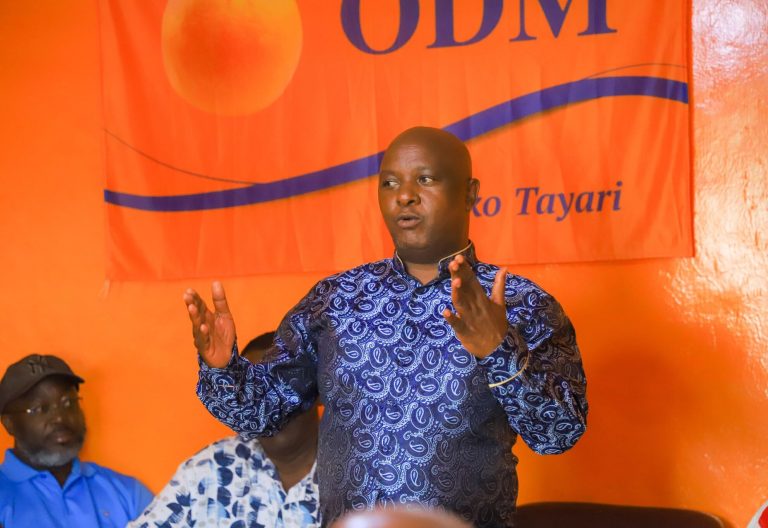Sorry state of slum school calls for support, donation

Mikindani’s main street curves off the Nairobi-Mombasa highway, a winding narrow, dusty path bustling with activity.
It leads to Mikindani Comprehensive School, nestled about 8.5 kilometers west of Mombasa.
From the entrance, the school’s modern buildings and beautifully landscaped gardens immediately capture attention.
This institution, funded through a development initiative between the Kenyan Government and Germany under the German-Kenyan Financial Cooperation, sits near the informal settlement of Bangladesh, a sprawling slum in the neighborhood. Despite the impressive infrastructure, the reality for many students is stark. Beyond the magnificent modern structures defining the model school is a sorry tale of learners from needy families grappling with poverty in their quest for education.
The head teacher,Peninah Muthuuri, describes the daily hardships these students endure. Basic necessities like furniture and writing materials are often out of reach for many.
Sitting on the floor
Some students are forced to sit on the floor due to a lack of furniture, as their parents cannot afford to provide it.
“Many of our students, even those in senior classes, lack pens for their assignments. Unless a teacher steps in to provide them, the students can’t complete their work,” Muthuuri says. This situation came to light during BIC’s pen donation drive at Mikindani Primary School. Muthuuri noted that most students lacked essential learning materials and even basic nutrition.
“Many of our students come to school on empty stomachs. We support them with food and clothing because most of them come from hand-to-mouth families,” she added. The school hosts 1,400 primary and Early Childhood Development (ECD) pupils and 692 junior secondary students.
BIC East Africa Marketing Manager Salome Ngugi explained their commitment to improving learning conditions for 250 million students globally by 2025.
“In Kenya, we have distributed 1.4 million pens, impacting over 750,000 students,” Ngugi said. Mikindani Comprehensive School was their 15th this year.
Ngugi noted the impact of providing writing instruments, noting, “If a child lacks a pen, it affects their performance in school.” BIC collaborates with organizations like Carolina for Kibera (CFK) to identify schools in need, striving to ensure no learner is left behind.
CFK Africa Project Education Manager Joshua Omweno underscored the importance of education in addressing poverty. “We’ve come to Mikindani to support student success by providing material aid,” Omweno said.
CFK Africa operates in eight counties, targeting over 32,000 learners for quality education through scholarships, girls’ empowerment, and value-based sports programmes.
While acknowledging that the organisation may not be able to sort out all the issues that the students go through, she reckoned, providing pupils with the writing instruments can be part of the solution.
“In terms of selecting schools, we work with organizations that have the same vision and mission and for this year, we are working in collaboration with CFK and it’s through these NGOs that we can identify the schools where we have pupils who need writing instruments,” she said noting, through this initiative, the organisation believes that little by little, no learner will be left behind in terms of education
CFK Africa Project Education Manager, Joshua Omweno said education is one of the most effective tools in addressing poverty.
“We’ve come to Mikindani Primary School to help in addressing this by sharing material support, which is one of the most important issues that negate student success,” said Omweno.
He said CFK Africa has established through their research that when learners are supported to access quality education, then they come to school and stay in school.
Quality education
CFK Africa is present in eight counties in Kenya, working in 25 informal settlements and targets over 32,000 learners to have access to quality education.
“We offer interventions such as scholarships, girls’ empowerment, and value-based sports, where we use sports as a tool for social cohesion and peacebuilding. We also provide health services ranging from clinical health services, and maternal child health,” he said.
According to a 2022 publication by Kijabe Children’s Education Fund, 1.5 million school-going children in Kenya do not attend any school due to poverty and one of two Kenyan girls will never attend school while nine in 10 children from poor households will fail to complete their eighth grade. Poverty being a major hindrance to education among many learners, Muthuuri is of the view that partnerships with organizations can improve levels of education, which falls under the fourth Sustainable Development Goal (SDG 4).








